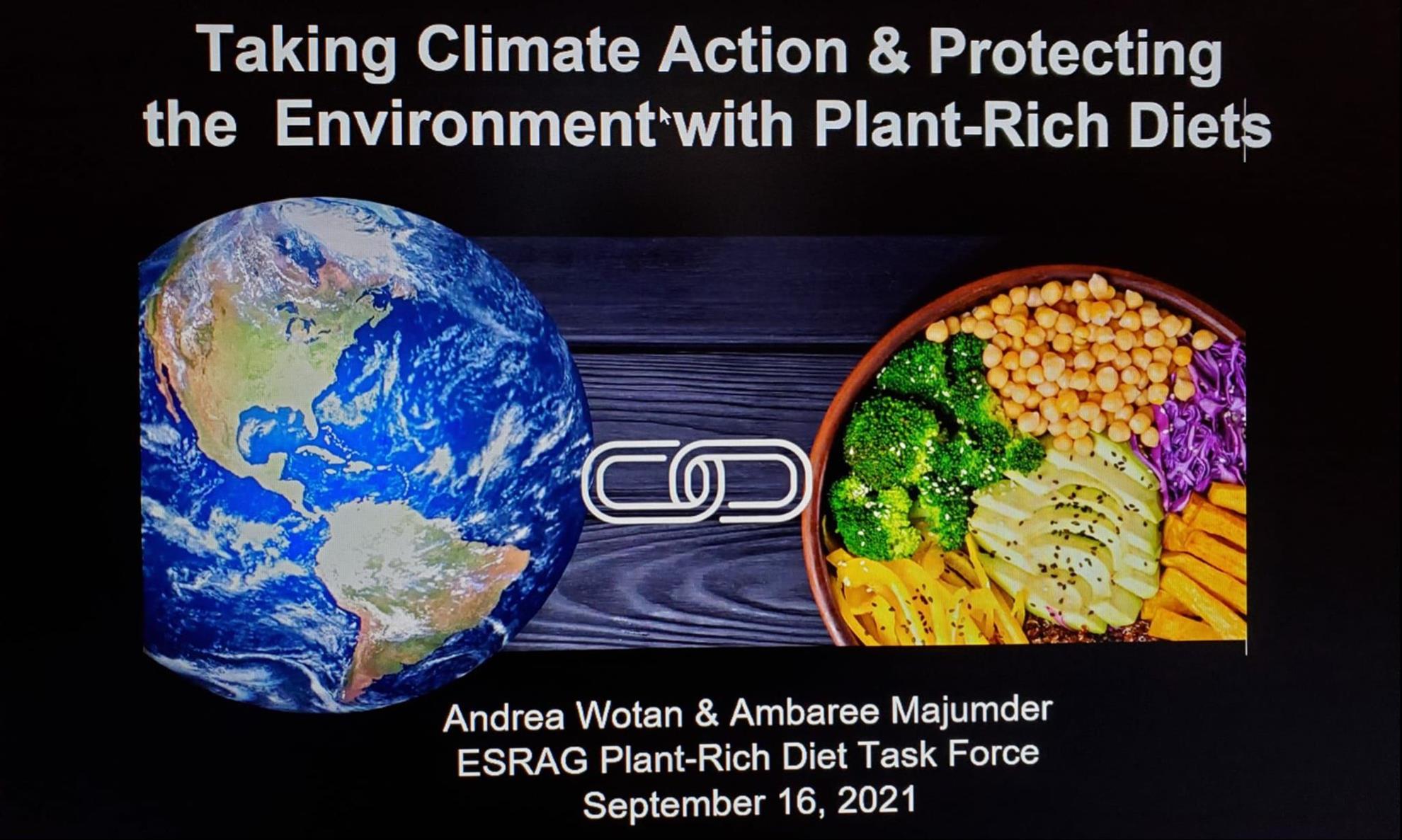On January 13, 2022, Scott Nelson gave a presentation called "Taking Climate Action & Protecting The Environment With Plant-Rich Diets".
Before Scott's presentation Pres. Tammy announced the RCAAN will have a Youth Exchange Student this year. Trinity Schindel will be studying in Germany this year.
After this special announcement Scott began his presentation. Plant-based or plant-forward eating patterns focus on foods primarily from plants. This includes not only fruits and vegetables, but also nuts, seeds, oils, whole grains, legumes, and beans. It doesn’t mean that you are vegetarian or vegan and never eat meat or dairy. Rather, you are proportionately choosing more of your foods from plant sources.
Scott said, emissions from animal Agriculture are a major source of destroying the earth. The sources of emissions from animal agriculture is:
- Methane: Animals
- Burps: At least one thing is true for cows around the world: They all burp. All the time. This incessant belching expels an impressive volume of greenhouse gases—mostly methane and carbon dioxide. Added up, burps from cows account for 26 percent of the United States' total methane emissions.
- Manure Logons: Manure is the decomposed form of dead plants and animals.
- Nitrous Oxide: Feed Crops
- Nitrogen Fertilizer
- Manure as Fertilizer
- CO2: Land Use & Other
- Land Use Change (Deforestation)
- Fertilizer and Pesticide Manufacture
- Transporting and Processing Animal Feed
Plant-Rich Diets would also reduce water pollution. It can get rid of fertilizers (Nitrogen, Phosphorus), pesticides, herbicides, manure, other animal waste, hormones, viruses, antibiotic-resistant bacteria, chemical additives, cleaning agents, heavy metals, silage leachate, etc..
Animal Agriculture emits 53 percent of the global total of emissions. Fewer livestock animals mean less need for food and less nitrogen and manure use.
What farmers can do to help is to grow oats, hemp, fava beans, vegetables, mushrooms, peas, nuts, bamboo, etc.. They can also set aside land for carbon sequestration, biodiversity protection, water restoration, etc..
A Plant-Rich Diet also lowers the risk of Chronic Diseases like:
- Heart Disease
- Type 2 Diabetes
- Obesity
- Cancer
Go to https://esragdev.com/plant-rich-diet/ to get information on the Plant Rich Diet Challenge which Scott, Manish and Brianna took a big part in.
For more photos of Scott's presentation CLICK HERE
